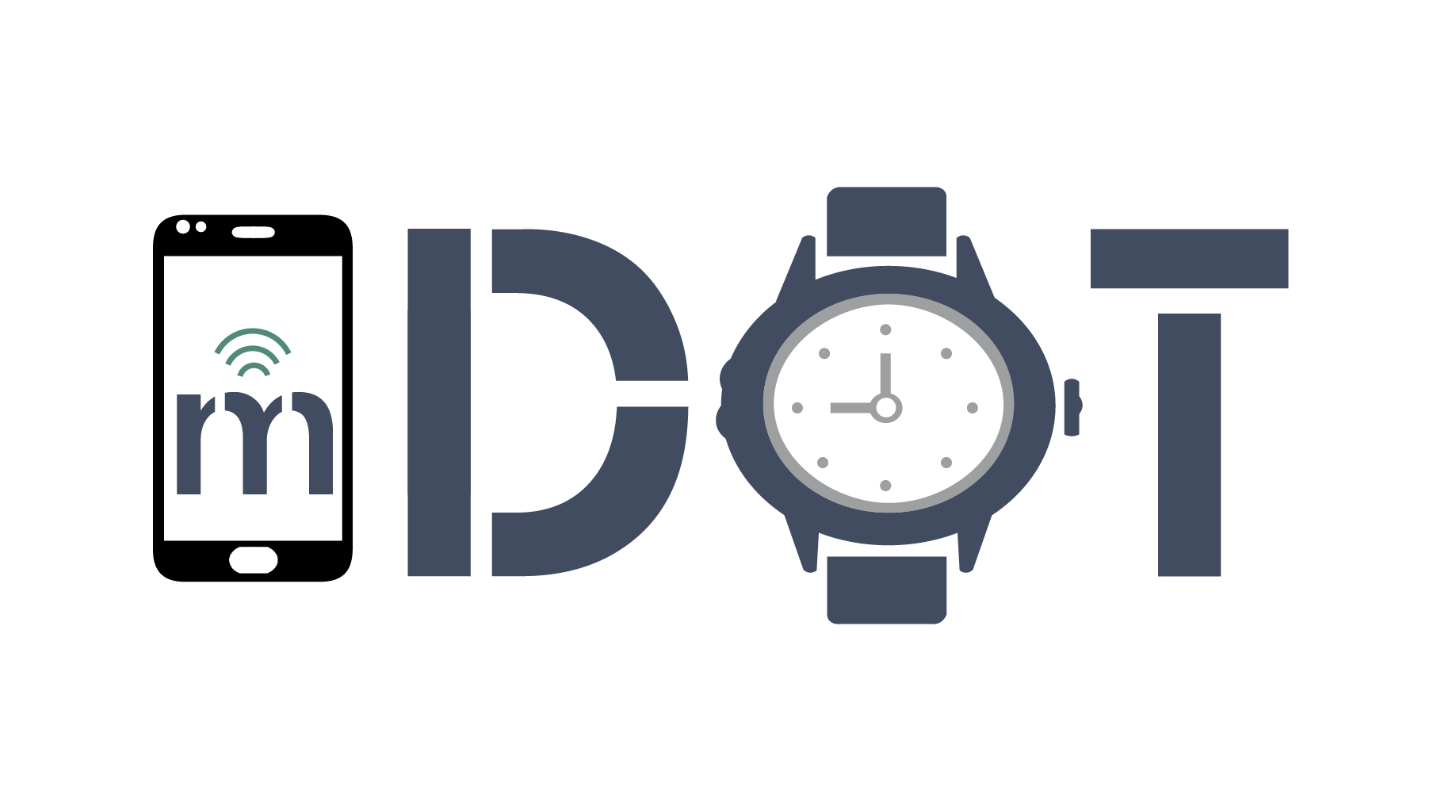The mDOT Center
Transforming health and wellness via temporally-precise mHealth interventions






mDOT@MD2K.org
901.678.1526
901.678.1526






Tuesday, October 15, 2024 | 8:00 AM – 4:30 PM MT
The Visioning Workshop on Optimizing interventions leveraging Brain, Behavior, and Physiology interactions in the Natural Field Environment is designed as a dynamic and forward-thinking event bringing together experts from academia and industry. The workshop utilizes a multifaceted approach, incorporating presentations, brainstorming sessions, demos, breakout groups, and networking opportunities. This format ensures active engagement, collaborative discussions, and knowledge exchange among participants.
This workshop aims to bring together researchers from neuroscience, behavioral science and AI with mHealth experts from the mDOT Center to explore how recent advances in generative AI, foundation models, and digital twins can be used to develop a new unified framework to link brain, behavior, and physiology in people’s natural environment, to design and optimize the next generation of treatments and interventions.
The workshop will explore new frontiers by integrating neuroscience, behavioral science, and AI to create a unified framework that bridges brain, behavior, and physiology in real-world settings. It will leverage advanced technologies like generative AI, foundation models, and digital twins to pioneer innovative, personalized, and adaptive interventions. Emphasizing real-world application, the workshop aims to ensure that research and interventions are grounded in natural field environments, leading to more scalable solutions. Collaborative innovation will be encouraged, fostering a multidisciplinary approach to solving complex problems at the intersection of these fields, ultimately pushing the boundaries of current mHealth research and application.
The workshop will focus on identifying both opportunities and challenges in advancing the integration of brain, behavior, and physiology within mHealth. It aims to map key opportunities by exploring how generative AI, foundation models, and digital twins can be used to create more precise interventions. The workshop will assess the potential for technological integration across neuroscience, behavioral science, and AI, while also evaluating the real-world implementation of these technologies, including the logistical, ethical, and technical challenges. Additionally, it will address the complexities of managing and interpreting data, identify gaps in current research and practice, and balance the pursuit of innovation with the feasibility of practical, scalable interventions.
The workshop will address the ethical and technical challenges of advancing brain, behavior, and physiology integration in mHealth by exploring the ethical implications of using generative AI, foundation models, and digital twins, with a focus on privacy, consent, and data security. It will emphasize responsible AI usage, ensuring transparency, fairness, and alignment with individuals’ best interests, while also tackling the technical challenges of data privacy, security, and the integration of complex systems into real-world environments. The workshop will address bias, promote equity, and focus on designing interventions that respect autonomy, enhance well-being, and are culturally sensitive, ensuring that innovation is both responsible and effective.
The workshop aims to foster an environment of cross-disciplinary learning and collaboration by encouraging active engagement through interactive sessions, such as breakout groups, demos, and brainstorming activities. Participants from neuroscience, behavioral science, AI, and mHealth will share knowledge and perspectives to deepen the collective understanding of brain, behavior, and physiology interactions. The workshop will also promote collaborative problem-solving, showcase real-world applications of advanced technologies, and provide networking opportunities to build lasting partnerships. Ultimately, the goal is to cultivate a shared vision for the future of integrated interventions, aligning efforts towards common goals.
A pivotal goal of the workshop is to develop a strategic roadmap. Through report-back sessions and working groups, attendees will summarize key findings, insights, and gaps identified during the workshop. These inputs will contribute to the development of a white paper outlining the research agenda for this emerging research area, guiding future studies and innovations in the field.
The closing session of the workshop will provide a platform for summarizing outcomes and contributions. Participants will share insights gained and discuss the next steps for the research community. The workshop aims to foster a sense of community, encouraging ongoing collaboration, knowledge exchange, and joint initiatives in the evolving landscape of generative mHealth interventions.
Washington & Adams Bldg.
2200 W Parkway Blvd
West Valley City, UT 84119
4028 Parkway Blvd
West Valley City, UT 84120
Phone: 801-679-8222
LEARN MORE
The workshop will take place in the Franklin Covey Global Headquarters in Salt Lake City, UT. The meeting will be held in world renowned Training Center on campus at the Hyrum Smith Auditorium.
Franklin Covey Co., trading as Franklin Covey and based in Salt Lake City, is a coaching company which provides training and assessment services in the areas of leadership, individual effectiveness, and business execution for organizations and individuals.
Franklin Covey Global HQ & Training Center
Hyrum Smith Auditorium
Washington & Adams Bldg.
2200 W Parkway Blvd
Salt Lake City, UT 84119
The majority of workshop attendees will be staying at the Home2 Suites by Hilton in West Valley City, UT.
The hotel is conveniently located 2 miles from the Franklin Covey Training Center (6 minute drive) and only 11 minutes to Salt Lake City International Airport.
Home2 Suites by Hilton (West Valley, UT)
4028 Parkway Blvd
West Valley City, UT 84120
Phone: 801-679-8222
For those staying at the Hilton: A hot breakfast is complimentary with your stay.
Continental breakfast, freshly brewed coffee, and hot tea will be available from 8:00 am onwards just outside the meeting room in the Hyrum Smith Auditorium. Attendees are encouraged to join between 8:00 am and 8:30 am, allowing ample time for networking and catching up before the workshop begins.
For attendees staying at the Home2 by Hilton, there will not be a shuttle to the conference venue.
Attendees are encouraged to carpool with fellow attendees at the Hilton who may have rental cars or Uber/Lyft to the venue.
Once onsite at the Hyrum Smith Auditorium, attendees will connect to the ‘FC Guest’ network and follow the registration information.
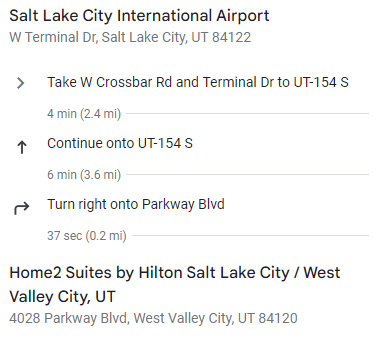
Nestled on the foothills of the Rocky Mountains, and overlooking the largest inland lake in the western US, Salt Lake City, UT is home to a pioneering past, and an exciting future.
Salt Lake City, often shortened to Salt Lake or SLC, is the capital and most populous city of the U.S. state of Utah. It is the county seat of Salt Lake County, the most populous county in the state.
Salt Lake City was founded on July 24, 1847, by early pioneer settlers led by Brigham Young who were seeking to escape persecution they had experienced while living farther east. The Mormon pioneers, as they would come to be known, entered a semi-arid valley and immediately began planning and building an extensive irrigation network which could feed the population and foster future growth. Salt Lake City’s street grid system is based on a standard compass grid plan, with the southeast corner of Temple Square (the area containing the Salt Lake Temple in downtown Salt Lake City) serving as the origin of the Salt Lake meridian. Owing to its proximity to the Great Salt Lake, the city was originally named Great Salt Lake City. In 1868, the word “Great” was dropped from the city’s name. Immigration of international members of the Church of Jesus Christ of Latter-day Saints (LDS Church), mining booms, and the construction of the first transcontinental railroad brought economic growth, and the city was nicknamed “The Crossroads of the West”. It was traversed by the Lincoln Highway, the first transcontinental highway, in 1913. Two major cross-country freeways, I-15 and I-80, now intersect in the city. The city also has a belt route, I-215.
(Courtesy of Wikipedia).

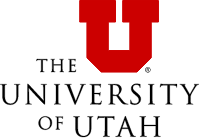 Capturing synchronized neural and experiential data during human navigation in the wild
Capturing synchronized neural and experiential data during human navigation in the wild
The ultimate goal of neuroscience is to understand and explain real-world behavior in terms of brain activity, and to use these insights to develop therapeutic approaches for neural disorders. By using mobile recording devices synchronized with intracranial EEG recordings in epilepsy patients with an implanted deep brain recording system, we can study the neural basis of human activities such as navigation and real-world memory encoding in a way that captures the complexity, scale, and functional characteristics of real-world experiences. We asked five participants to learn a 0.75-mile route around campus while hippocampal electrophysiology was recorded. Subjects walked the route 7-8 times across two days, with the 1st walk guided (encoding) and 6-7 of the walks navigated by the participants themselves (navigation retrieval; 28.5 total miles). Findings across all participants suggest that theta band power significantly increases when participants are navigating outdoors relative to indoor navigation. We also find evidence that temporal lobe theta band power changes immediately around spatial event boundaries. Taken together, these initial neural findings support our hypothesis that medial and lateral temporal lobe activity changes around real-world event boundaries. Future studies will investigate the potential of direct brain stimulation to enhance episodic memory for real-world experiences. Related to this future goal, Dr. Inman will also discuss his prior work demonstrating that direct amygdala stimulation can enhance declarative memory in humans.
Quantifying attention in the lab versus natural environment: Challenges & opportunities![]()
Nearly a century of laboratory electroencephalography (EEG) studies on attention control and selective attention have identified candidate oscillatory and event-related potential indicators of visual attention processing. However, the utility of such indicators for prediction or tracking in natural environments has not been as successful. In this presentation I will discuss empirical efforts to address the gap, by translating EEG-based attention assessments into natural environments such as classrooms. I discuss the value of oscillatory signals for tracking attention in naturalistic learning activities, with the goal of validating such measures as an objective index of visuospatial cortex engagement across learning contexts, as well as the limitations, including poor correlation between naturalistic and in-laboratory assessments. The results provide insight into root causes of (and potential solutions to) weak associations between in-lab and naturalistic measures of attention states, highlighting the critical barriers and opportunities in translational science of attention intersecting lab and natural settings.

Utilizing deep brain recordings to uncover nature’s health potential for nature-deprived individuals.
Being out in nature has been shown to mitigate stress, improve mood, facilitate cognitive processes, and relieve anxiety and depressive symptoms. Immersion in Virtual Reality (VR) nature environments can be used as a surrogate for real world exposure, and may be particularly beneficial for individuals who are nature deprived, such as hospitalized patients. Here, we utilize VR stereoscopic environments in natural and cityscape scenes to observe how immersion in nature impacts cognition and attention, as well as how immersion may alleviate depression and anxiety symptoms. We utilize intracranial electroencephalography recordings from drug-resistant epilepsy patients undergoing invasive neurosurgery for the monitoring and localization of their seizures. From these rare recordings we can look at high temporal resolution human brain activity, including local field potential high broadband frequency (70-150Hz), a common measure of neural population firing, single-unit firing from microelectrode recordings, and spectral frequency data, such as low-band delta and theta activity, that are commonly associated with attention, cognition, and effort. While this newly funded project is in its infancy, we will discuss the potential applications of VR for in the realms of mental health, psychiatry, and cognitive neuroscience, as well as its potential as a therapeutic tool.
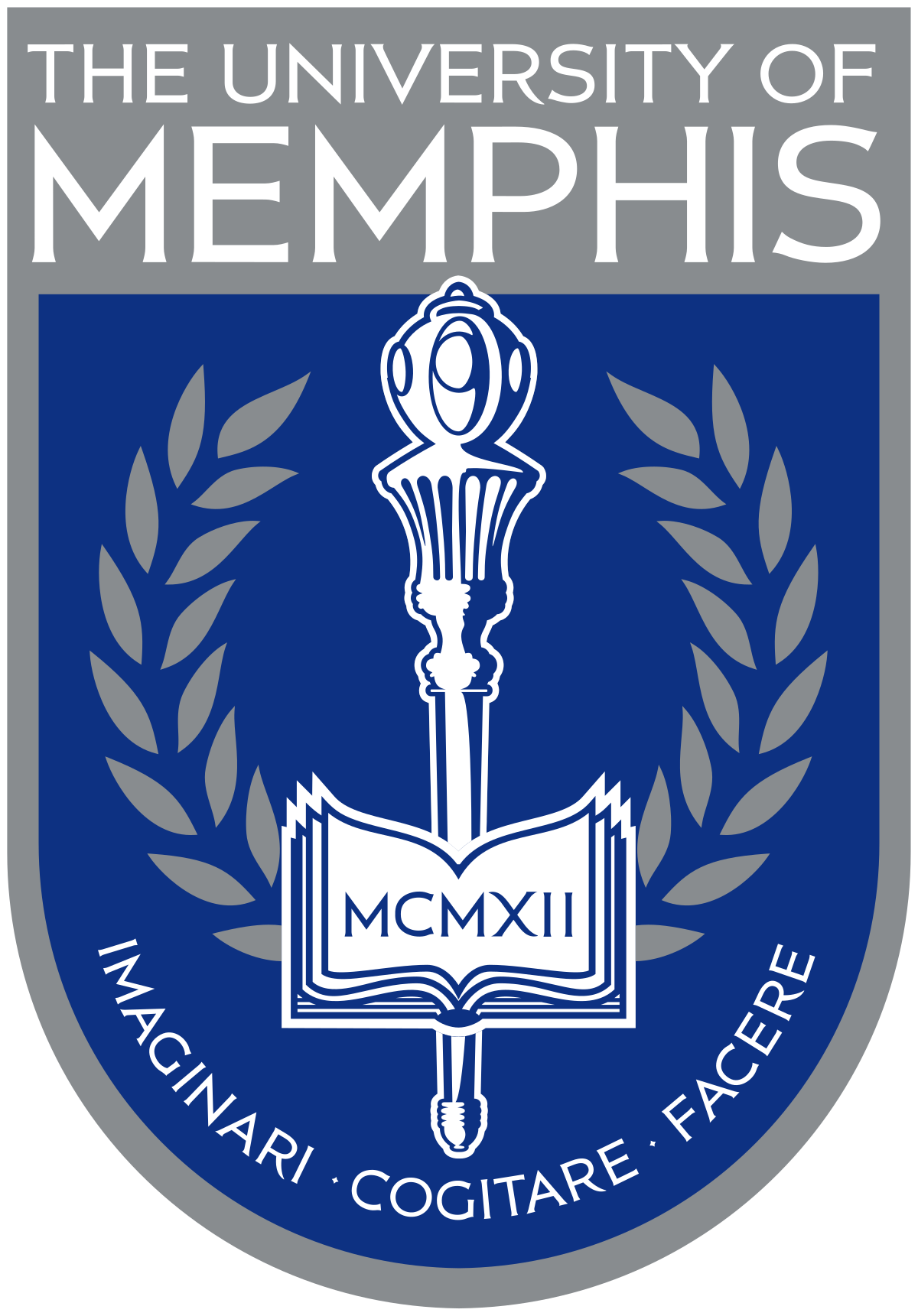 Music-based intervention research: Opportunities for collaboration focused on emerging technologies and precision medicine
Music-based intervention research: Opportunities for collaboration focused on emerging technologies and precision medicine
Over the past 10 years NIH, in partnership with NEA, has awarded approximately $20 million to support the study of music-based interventions (MBIs). The most recent initiative focused on identifying mechanisms and technologies that could expand our understanding about how MBIs work and assist in the delivery of and objective measurement of MBIs. Specifically, how can we leverage the role of biomarkers (bioassays, electrophysiology, imaging, omics) to optimize the delivery of MBIs. This presentation will provide a description of 4 networks tasked with expanding research collaborations, highlight current technologies used in MBI research, and identify collaborative opportunities.
 Utilizing deep brain recordings to uncover nature’s health potential for nature-deprived individuals.
Utilizing deep brain recordings to uncover nature’s health potential for nature-deprived individuals.
Being out in nature has been shown to mitigate stress, improve mood, facilitate cognitive processes, and relieve anxiety and depressive symptoms. Immersion in Virtual Reality (VR) nature environments can be used as a surrogate for real world exposure, and may be particularly beneficial for individuals who are nature deprived, such as hospitalized patients. Here, we utilize VR stereoscopic environments in natural and cityscape scenes to observe how immersion in nature impacts cognition and attention, as well as how immersion may alleviate depression and anxiety symptoms. We utilize intracranial electroencephalography recordings from drug-resistant epilepsy patients undergoing invasive neurosurgery for the monitoring and localization of their seizures. From these rare recordings we can look at high temporal resolution human brain activity, including local field potential high broadband frequency (70-150Hz), a common measure of neural population firing, single-unit firing from microelectrode recordings, and spectral frequency data, such as low-band delta and theta activity, that are commonly associated with attention, cognition, and effort. While this newly funded project is in its infancy, we will discuss the potential applications of VR for in the realms of mental health, psychiatry, and cognitive neuroscience, as well as its potential as a therapeutic tool.
![]() Case Studies from the Artificial Intelligence and Technology Collaboratories for Aging Research Program
Case Studies from the Artificial Intelligence and Technology Collaboratories for Aging Research Program
The National Institute of Aging’s Artificial Intelligence and Technology Collaboratories for Aging Research (AITC) program is designed to serve as a national resource to promote the development and implementation of artificial intelligence approaches and device technologies through demonstration projects to improve care and health outcomes for older Americans, including persons with dementia and their caregivers. This talk will present several case studies of early stage wearable and mobile device technologies that have been investigated through pilot projects conducted by AITC program awardees. The talk will focus on projects that aim to assess and support cognitive function in older adults and persons with dementia.
![]() Neuro-stack: A Wearable Clinical Research System for Advanced Closed-loop Neuromodulation
Neuro-stack: A Wearable Clinical Research System for Advanced Closed-loop Neuromodulation
Pharmacological therapies for a vast majority of brain disorders (epilepsy, depression, chronic pain, Alzheimer’s disease) are limited, and many patients are resistant to medications. Deep-brain stimulation is a complex surgical treatment using electrical stimulation technology re-purposed from the pacemaker industry. While there have been notable clinical successes (e.g. Parkinson’s disease), shortcomings in existing technologies prevent them from expanding to other indications. The use of “old technology” has failed on new indications, most notably depression and Alzheimer’s studies. DARPA invested $33M in our team at UCLA and UCSF to develop research technology capable of interacting with functional brain networks, with 200+ electrodes and self-regulating closed-loop. This R&D technology holds promise for a medical device as a service in the future, and is currently used in human subject experiments at UCLA. The seminar will also discuss associated neurotechnologies and future opportunities.
Privacy-Preserving Methods for Monitoring Behavior and Affective State at High Resolution: New Approaches Combining Wearable and Infrastructure Sensors
This talk will review sensor technologies for monitoring behavior and affective states at high precision and resolution. High temporal resolution is vital for observing behavior dynamics at scales relevant to the underlying brain processes and can significantly enhance our understanding of complex cognitive functions. Insights gained from studying these behaviors in naturalistic settings like the home environment can inform the development of tools to monitor behavior in real time and intervene before maladaptive actions occur.
Significant advancements have been made in capturing human motion and emotional states using multiview camera networks, now considered the gold standard in the field. However, using cameras in natural environments raises privacy concerns for both participants and bystanders. Our recent work has focused on developing privacy-preserving methods for capturing human motion and estimating affective states while maintaining high temporal resolution. We explore combining high-frequency measurements from wearable sensors—such as Inertial Measurement Units (IMUs), Photoplethysmography (PPG), and Galvanic Skin Response (GSR) sensors—with environmental data from compact infrastructure sensors that integrate LiDAR and millimeter-wave modalities and discuss the opportunities and challenges of using multiple high-rate sensors in this setting.
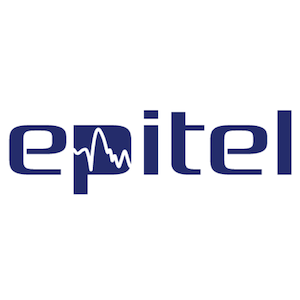 REMI Vigilenz™ AI for Event Detection – A Discrete Electrographic Seizure Detection Algorithm for Extended-Duration Wearable EEG
REMI Vigilenz™ AI for Event Detection – A Discrete Electrographic Seizure Detection Algorithm for Extended-Duration Wearable EEG
Epitel is a digital health company modernizing brain health solutions to improve seizure monitoring and detection. Epitel’s first commercial medical device is a wireless, wearable EEG monitoring system (REMI™) that is US FDA-cleared for use in healthcare and ambulatory environments for up to 30 days. To support review of this extended-duration data, a novel algorithm, diverse across patients, environments, and seizure types, was developed and validated as a clinical decision support system to detect and highlight regions of REMI EEG that are suggestive of self-limiting electrographic seizures. This talk will focus on the development, validation, and early commercialization of the REMI Vigilenz AI for Event Detection algorithm.
 Current challenges and limitations for AI and closed loop in translational device development
Current challenges and limitations for AI and closed loop in translational device development
The neuromodulation field has seen substantial recent progress in machine learning for biomedical sciences. However, commercialization of closed-loop neuromodulation devices has lagged significantly behind research progress. While devices capable of simultaneous recording and stimulation have been in investigational use for over a decade, it is only relatively recently that they have been indicated for specific commercial therapeutic uses such as spinal cord stimulation and deep brain stimulation. Moreover, the techniques currently used in closed-loop neuromodulation devices are rather rudimentary compared to the state of the art.
This presentation will provide an overview of current closed-loop neuromodulation modalities, focusing on techniques utilized in commercially available devices for chronic pain and movement disorders. We will discuss both these existing techniques and state-of-the-art approaches, highlighting the technical, regulatory, and business challenges that medical device developers currently face in bringing these innovations to market.

Shaping the Future: Brain-Computer Interfaces and Neural Implants in Restoring Human Ability
Join Rob Franklin, VP of Brain-Computer Interfaces at Blackrock Neurotech, for an in-depth discussion on the future of neural implants and brain-computer interfaces (BCIs). Rob will explore recent technological advancements that are driving innovative solutions to restore motor function and enhance human ability. Drawing on his extensive experience developing implantable wireless neural electronics and silicon electrodes, he will showcase how cutting-edge interventions are pushing the boundaries of functional restoration and transforming the quality of life for individuals today and in the future. This talk will also explore the challenges and opportunities in integrating AI with BCIs, offering a glimpse into the future of neurotechnology and its profound potential to reshape human capability.
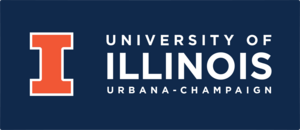
The Promise of Generative AI for mHealth Interventions
Generative AI models have recently demonstrated impressive performance in the synthesis of content across a variety of modalities including natural language, images, video, and audio. This talk will provide an introduction to generative AI technology and its potential use in creating content for mHealth interventions. We will use two recent works in video and image synthesis to illustrate the promise and challenges of these methods: a recent text-based video editing method (CVPR 2024, spotlight paper) that is the current SOTA and a novel method for synthesizing task-specific context-conditioned images for augmented reality applications (ECCV 2024, best paper finalist).
Enjoy the journey…: The Elusive Search for Meaningful Biomarkers in MRI
Enormous amounts of neuroimaging research is spent searching for biomarkers of something. Markers diagnosis, markers of potential treatment response, markers of subtype, etc. Most research studies find something. An actual biomarker? Probably not. Even if a putative biomarker (or proto-biomarker) is discovered, to be a clinically useful biomarker it must be stable, scalable and actionable. Most proto-biomarkers fail the challenges of stability and actionability (before even needing to consider scalability). In this presentation, we will look at some of the examples that have ‘made it’, and consider how to make the process of discovery more efficient.
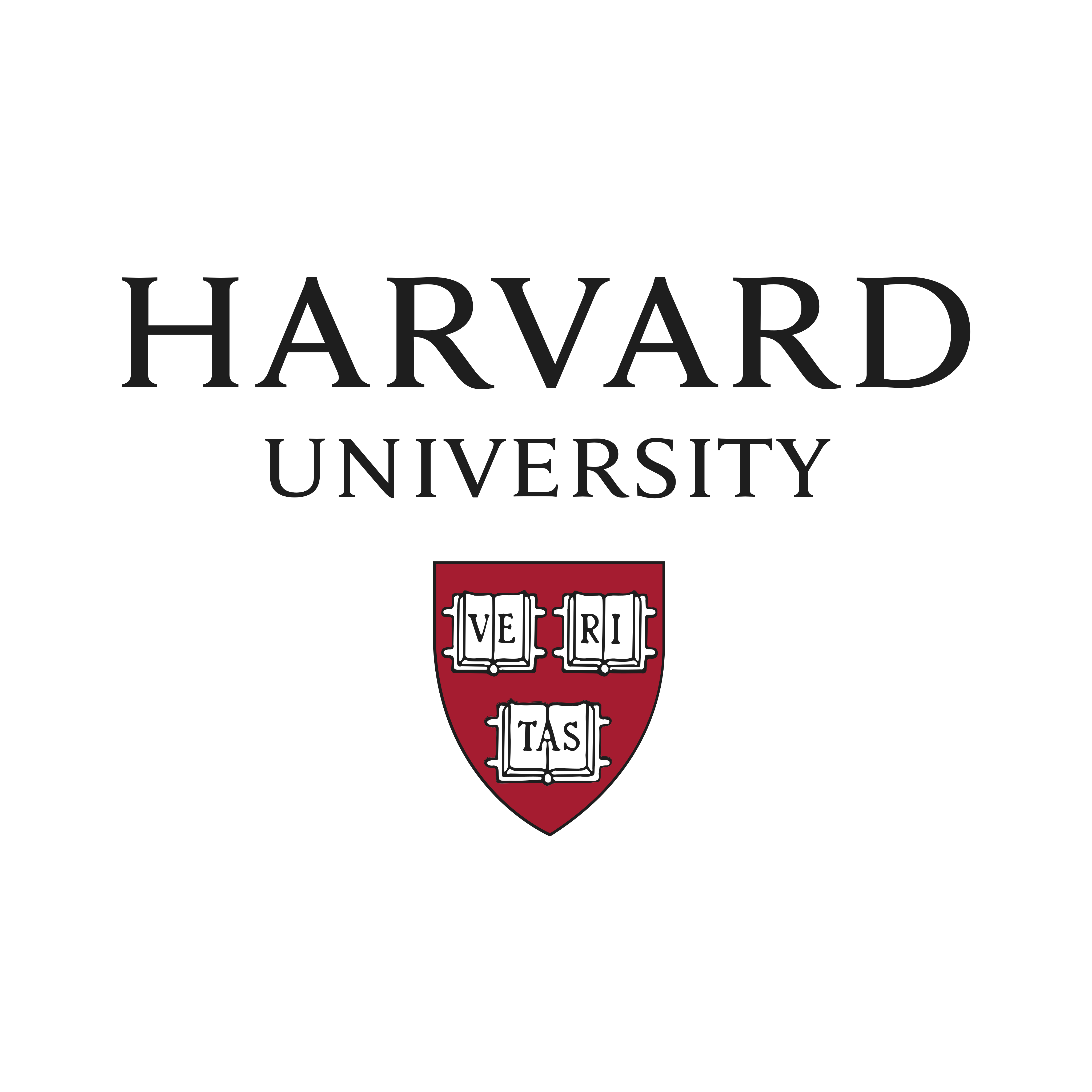 Assessing Personalization by Online Reinforcement Learning Algorithm: HeartSteps & Oralytics
Assessing Personalization by Online Reinforcement Learning Algorithm: HeartSteps & Oralytics
As AI algorithms are increasingly deployed as part of digital health interventions, it is critical to assess whether the AI algorithm actually learned during the intervention. In this short talk we discuss early work to assess learning by the online reinforcement learning algorithms deployed in the HeartSteps and Oralytics health interventions.





Jason Hong, PhD | Professor in the Human Computer Interaction Institute | Carnegie Mellon University
David C. Mohr, PhD | Professor of Preventive Medicine | Northwestern University
David Kennedy, PhD | Professor of Psychiatry | University of Massachusetts Medical School
Veena Misra, PhD | MC Dean Distinguished University Professor | NC State University
Niteesh Choudhry, MD, PhD | Professor of Medicine | Harvard Medical School
Santosh Kumar, PhD | Lillian & Morrie Moss Chair of Excellence Professor | University of Memphis – Center Director, Lead PI, TR&D1, TR&D2, TR&D3
Jim Rehg, PhD | Founder Professor of Computer Science | University of Illinois Urbana-Champaign – Center Deputy Director, TR&D1 Lead
Susan Murphy, PhD | Professor of Statistics & Computer Science | Harvard University – TR&D2 Lead
Benjamin Marlin, PhD | Associate Professor | University of Massachusetts Amherst – Co-I, TR&D1, TR&D2
Emre Ertin, PhD | Associate Professor | The Ohio State University – TR&D3 Lead – Workshop Co-Chair
Mani Srivastava, PhD | Professor of Electrical Engineering & Computer Science | University of California, Los Angeles – Co-I, TR&D3 – Workshop Co-Chair
Vivek Shetty, DDS, MD | Professor of Oral & Maxillofacial Surgery/Biomedical Engineering | University of California, Los Angeles – Training & Dissem. Lead
Debra Burns, PhD | Dean, College of Communications & Fine Arts | The University of Memphis
Wonwoo Byun, PhD | Associate Professor | The University of Utah
Rhiannon Cowan, PhD | Department of Neurosurgery | The University of Utah
Lisa Diamond, PhD | Distinguished Professor of Psychology | The University of Utah
Mitch Frankel, PhD | Senior Computational Scientist | Epitel, Inc.
Rob Franklin, PhD | SVP of Brain-Computer Interfaces | Blackrock Neurotech
Luis Garcia, PhD | Assistant Professor | The University of Utah – Workshop Co-Chair
Kellie Gerbers, PhD | Associate Professor | Westminster University
Stephen Hou | Biomedical Engineer | Blackrock Microsystems
Corey Inman, PhD | Assistant Professor | The University of Utah
Alan Kuntz, PhD | Assistant Professor | The University of Utah
Agatha Lenartowicz, PhD | Associate Professor | UCLA
Devan Mallory | Embedded Systems Engineer | The Ohio State University
Dejan Marković, PhD | Professor | UCLA
Elliot Smith, PhD | Assistant Professor of Neurosurgery | The University of Utah
Ramana Vinjamuri, PhD | Associate Professor | University of Maryland, Baltimore County
Neng Wan, PhD | Associate Professor | The University of Utah
Opeyemi Adeojo | Doctoral Student | The University of Utah
Yuyi Chang | Doctoral Student | The Ohio State University
Burke Dambly | Undergraduate Research Assistant | The University of Utah
Janet Ikhile | Doctoral Student | The University of Utah
Sujit Kumar Kamaraj | Doctoral Student | The University of Utah
Thomas Kauffman | Undergraduate Research Assistant | The University of Utah
Sameer Neupane | Doctoral Student | The University of Memphis
Iris Nguyen | Doctoral Student | The University of Utah
Yanran Lin | Doctoral Student | The University of Utah
Wanting Mao | Doctoral Student | University of Illinois Urbana-Champaign
Amy McDonnell, PhD | Post-Doctoral Research Fellow | The University of Utah
Rebecca Moore | Doctoral Student | The University of Utah
Niloufar Shahdoust | Doctoral Student | The University of Utah
Krista Wahlstrom, PhD | Postdoctoral Research Associate | The University of Utah
Maxwell Xu | Doctoral Student | University of Illinois Urbana-Champaign
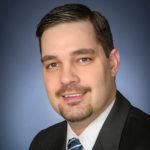
Director of Operations
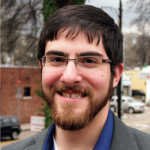
Director, Research Data & Studies
